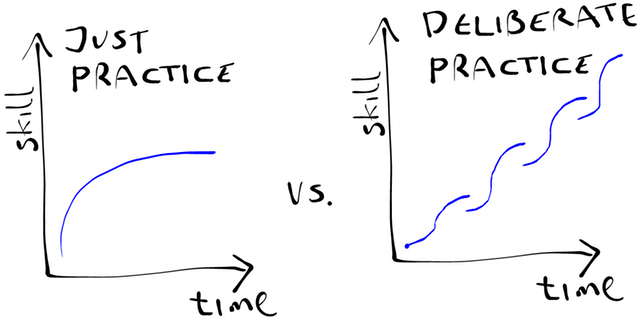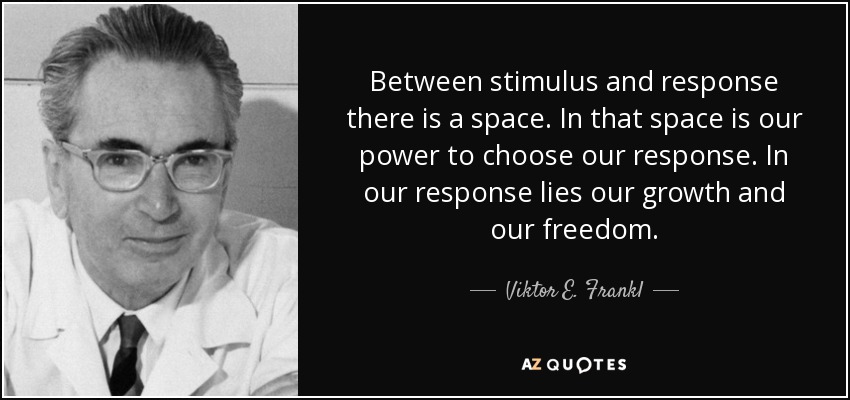Success rarely comes about by chance. It comes about because someone set a specific destination and made specific intentions about how to get there, and then took those steps.
In other words, success comes about through intention, being deliberate with what we do.
Effective leadership and being a positive influence comes about the same way.
Think about the way you lead, live, and/or parent. Do you have a clear destination and operate with intention for getting there? Or, do you tend to fly by the seat of your pants?

Think about the best leaders who always seem to be a positive influence on those around them. Do you think they have always been that way? Or, do you think that at some point in their life, they made the intention to be that way and took deliberate action and developed habits that would empower them to become a truly positive influence?
Effective leaders are intentional leaders. They are deliberate with their purpose, feelings, energy, influence, calendar, and well-being.
In this post, I briefly discuss each of these areas and give a few suggestions for broadly improving our intentionality.
Purpose
Being intentional about our purpose involves being deliberate about:
-
Our destination, and
-
Our “why” for our destination
Our destination provides the direction, our “why” provides the power. With both, we become a powerful ship headed from our current port to our future destination. Also, when storms come up, as they inevitably will, we become willing to face them and charge through.
The opposite of being intentional about our purpose is drifting. We are like life-raft blown about by the winds and currents of the sea. As a life-raft, if we see storms on the horizon, we are moved to run away.
For more on this, check out:
-
This prior blog post: Unlocking Greater Success By Developing a Promotion Mindset
-
This incredible (and shorter) Ted Talk by Amy Purdy: Living Beyond Limits
Feelings
There is a difference between our emotions and feelings:
-
Emotions – Instinctual reactions to a situation or event
-
Feelings – Mental portrayal of an emotion
While we can’t always control our emotions, we can control our feelings.
Victor Frankl’s reflection of his experience across four concentration camps during WWII is a powerful indicator of this:
“We who lived in concentration camps can remember the men who walked throughout the huts comforting others, giving away their last piece of bread. They may have been few in number, but they offer sufficient proof that everything can be taken away from a man but one thing: the last of the human freedoms—to choose one’s attitude in any given set of circumstances, to choose one’s own way.”
The unintentional react. The intentional thoughtfully respond.

Energy
Is our energy level something that we are stuck with?
No, our energy level is a choice.
In fact, in a fantastic book on the limits of human performance, Alex Hutchinson details over and over again that even when athletes feel depleted, they can call on greater energy.
See: Endure: Mind, Body, and the Curiously Elastic Limits of Human Performance
No matter our circumstance, we can intentionally choose a higher level of energy. We just need to be intentional about it.

Influence
Reflect upon an interaction you had recently, where you knew in advance that you were going to have that interaction (e.g., lunch meeting).
Were you intentional about that interaction, or did you essentially just “wing it?”
Consider how that interaction would have been different if you would have asked yourself these two questions prior to the interaction:
-
How do I want them to feel after interacting with me?
-
How do I want them to feel about me after interacting with me?
My guess is that you would have changed your approach and improved the quality of not only your interaction, but also your influence.
Calendar
The most successful people are intentional about their calendar. Rather than let their calendar be dictated by others, they become the driver and owner of their time. They identify their priorities (the most important things) and schedule them first, and then if they happen to have open time slots, that allows them to fit in those things that might be urgent.
This is Stephen R. Covey talk, who said: “Most of us spend too much time on what is urgent and not enough time on what is important.”
Well-being
Being healthy does not come about by chance. Being healthy requires effort and balance, both of which start with intentionality.
Too often we eat what is in the house. Those that want to eat healthy don’t let unhealthy things in the house.
Being “in shape” takes developing physical fitness habits. Those that struggle with developing these habits intentionally find ways to push them toward working out, such as putting out one’s workout clothes the night before.
Keeping our mind right and free from unhealthy stress requires being intentional about recharging our batteries.

2 Suggestions for Improving Our Intentionality
First, intentionality takes time. The most intentional people build time into their schedule, usually in the morning, to be intentional about their purpose for their day, feelings, energy, influence, calendar, and well-being.
Unfortunately, a common practice is that some people wake up at the last possible moment so that they aren’t letting others down (e.g., getting to work on time, helping with children). When we do this, the person we are letting down is ourselves, because we aren’t investing in ourselves. We aren’t being intentional
If you can develop a morning routine where you invest in yourself, you will become more intentional.
Second, we need to mind our transitions. Our days are filled with transitions between locations and tasks. Each of these transitions provides an opportunity to reset our intentions for what is in front of us. For example, if we are driving home from work, we can take a few seconds to set an intention about the energy and positive influence we are going to have with our family.
You can ask yourself:
-
Who am I going to greet first?
-
How am I going to greet them?
-
How can I make X feel loved and supported?
-
Am I going to positively contribute to the environment or negatively detract?
And remember: Success, effective leadership, and influence does not come about by chance, they come about through intentions.
This article is the 13th article in a series of articles all about helping people and leaders become people of positive influence, people that others want to follow.
-
Article 1: Why Do Organizations Miss the Mark when Developing their Leaders?
-
Article 2: Becoming a More Positive Influence: Rewire Your Brain
-
Article 3: Becoming a More Positive Influence: Develop a Self-Purpose
-
Article 4: Becoming a More Positive Influence: Know How to Build Trust
-
Article 5: Becoming a More Positive Influence: Are You the Villain?
-
Article 6: Becoming a More Positive Influence: Enhance Your Emotional Intelligence
-
Article 7: Becoming a More Positive Influence: Be Intellectually Humble
-
Article 8: Becoming a More Positive Influence: Investigate and Improve Your Why
-
Article 9: Becoming a More Positive Influence: Be Someone Others Want to Follow
-
Article 10: Becoming a More Positive Influence: Improve the Lenses You Use to See the World
-
Article 11: Becoming a More Positive Influence: Show Appreciation
-
Article 12: Becoming a More Positive Influence: Heal Thyself and Lead from Heart, not Hurt!










